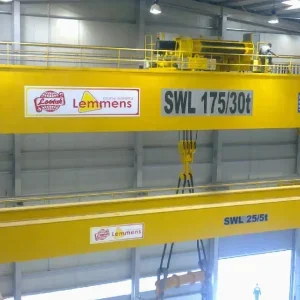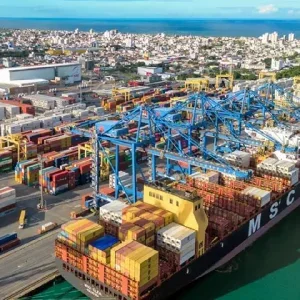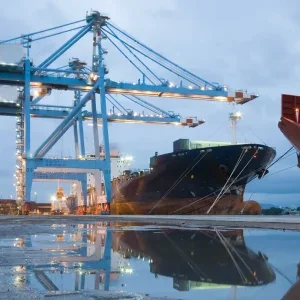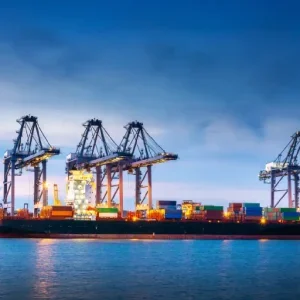At the ITER operation in Southern France, the largest fusion experiment in the world, Enerpac’s SyncHoist lifting systems are being used to assist with the assembly of the vacuum vessel. The vessel will host the fusion reaction: inside the vessel, plasma particles will collide and release energy at temperatures of up to 150m °C, without touching any of its walls thanks to a process of magnetic confinement. The vessel is made of nine sectors made of special-grade stainless steel, with each sector 13m high, 6.5m wide, and 6.3m deep.
The SyncHoist system comprises four double-acting push-pull cylinders connected to lifting points. ITER is using four 225t-capacity SyncHoists to assess the centre of gravity of each 500t vacuum vessel sector—as the centre of gravity of each sector may vary from the theoretical—to ensure the components are all lifted as close to level as possible.
Each vessel sector is delivered to ITER on a rigging platform; a SyncHoist is connected to each of the platform’s four lifting points, allowing millimetre-accurate control at each point. The SyncHoists are arranged in pairs, suspended from header beams connected to the ITER assembly hall’s overhead crane for the 10m lift to an upending tool, for vessel assembly.
Each of the 1,000mm-stroke SyncHoist hydraulic lifting systems were made completely leakproof. The SyncHoist lifting system will also be used to lift magnet field coils for insertion into the vacuum vessel.
“It is essential that we hold the vacuum vessel sector in the plane during lifting. SyncHoist allows us to know the load at each lifting point and control the lift precisely with a 1mm accuracy,” says Jarl Buskop, assembly engineer, Sector Modules Delivery & Assembly Division, ITER. “Another benefit of using SyncHoist to cope with variations in the centre of gravity is the ability to lift the vacuum vessel sector clear of its surrounding transportation frame where there is only 15–30mm clearance for the rigging platform






